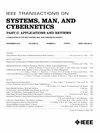The internationalization of engineering education: a tale of two countries
IEEE Transactions on Systems Man and Cybernetics Part C-Applications and Re
Pub Date : 2003-02-01
DOI:10.1109/TSMCC.2003.809356
引用次数: 12
Abstract
Two international exchange programs in engineering between universities in Japan and Canada, are described in order to explain the significant benefits gained by the undergraduate and graduate students, as well as the academic staff who participate, and to highlight key principles generally followed in the design and execution of exchange programs. One notable and successful engineering exchange program is between the University of Waterloo, located in Southern Ontario, Canada, and Tottori University in Japan, while the other is between the University of Waterloo and Kyoto University in Japan. Both of these programs include foreign students taking courses for credit or audit at the host university, and, for the case of graduate students, also receiving guidance in their research. Moreover, upon completion of one academic semester in Japan, all of the undergraduate Waterloo students studying at Tottori University are employed in Japanese industry for three to four months before returning to Canada. Of paramount importance to the education of the participating undergraduate and graduate students is the opportunity to learn, by first-hand experience, the language and culture of a foreign country. In fact, one of the key findings of a survey completed by Canadian and Japanese students who took part in the exchange programs, is that living in a different culture greatly enhanced their own personal development. The addition of this international perspective to a solid education in engineering opens many doors of opportunity for exchange program alumni, who are well prepared to fully participate in the global marketplace of the 21st century, and to assist society in responsibly reaching an equitable and sustainable future.工程教育的国际化:两个国家的故事
本文描述了日本和加拿大大学之间的两个国际工程交流项目,以解释本科生和研究生以及参与的学术人员所获得的重大利益,并强调了在设计和执行交流项目时通常遵循的关键原则。一个著名而成功的工程交流项目是位于加拿大南安大略省的滑铁卢大学和日本鸟取大学之间的,另一个是滑铁卢大学和日本京都大学之间的。这两个项目都包括外国学生在东道国大学学习学分或旁听课程,对于研究生来说,也在他们的研究中得到指导。此外,在日本完成一个学期的学习后,所有在鸟取大学学习的滑铁卢本科生在返回加拿大之前都会在日本企业工作三到四个月。对于参与的本科生和研究生的教育来说,最重要的是有机会通过第一手经验学习外国的语言和文化。事实上,参加交换项目的加拿大和日本学生完成的一项调查的主要发现之一是,生活在不同的文化中大大促进了他们自己的个人发展。在坚实的工程教育基础上增加这种国际视野,为交换项目校友打开了许多机会之门,他们已经做好充分准备,充分参与21世纪的全球市场,并以负责任的方式协助社会实现公平和可持续的未来。
本文章由计算机程序翻译,如有差异,请以英文原文为准。
求助全文
约1分钟内获得全文
求助全文
来源期刊
自引率
0.00%
发文量
1
审稿时长
3 months

 求助内容:
求助内容: 应助结果提醒方式:
应助结果提醒方式:


